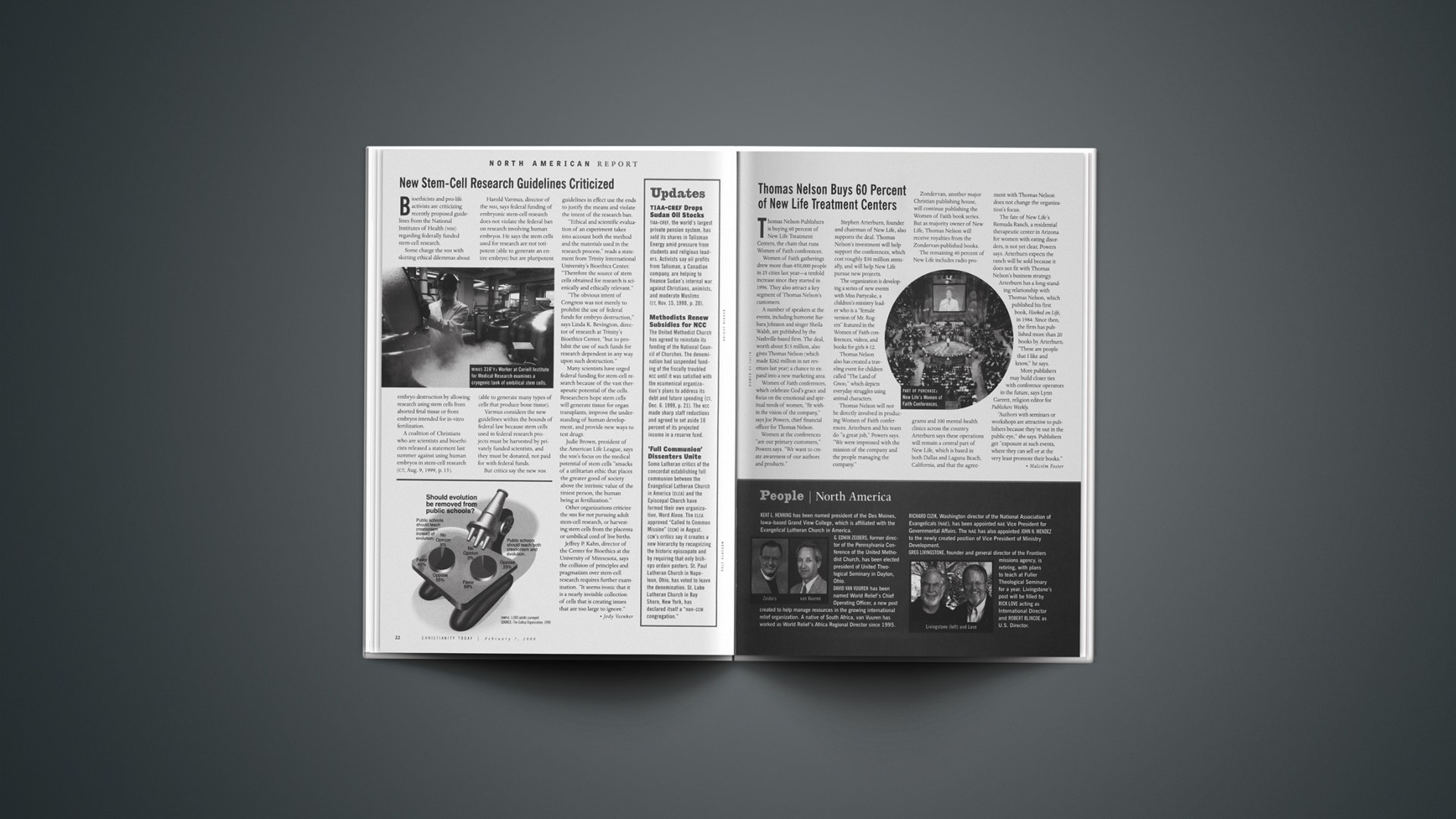Bioethicists and pro-life activists are criticizing recently proposed guidelines from the National Institutes of Health (NIH) regarding federally funded stem-cell research.
Some charge the NIH with skirting ethical dilemmas about embryo destruction by allowing research using stem cells from aborted fetal tissue or from embryos intended for in-vitro fertilization.
A coalition of Christians who are scientists and bioethicists released a statement last summer against using human embryos in stem-cell research.
Harold Varmus, director of the NIH, says federal funding of embryonic stem-cell research does not violate the federal ban on research involving human embryos. He says the stem cells used for research are not toti-potent (able to generate an entire embryo) but are pluripotent (able to generate many types of cells that produce bone tissue).
Varmus considers the new guidelines within the bounds of federal law because stem cells used in federal research projects must be harvested by privately funded scientists, and they must be donated, not paid for with federal funds.
But critics say the new NIH guidelines in effect use the ends to justify the means and violate the intent of the research ban.
“Ethical and scientific evaluation of an experiment takes into account both the method and the materials used in the research process,” reads a statement from Trinity International University’s Bioethics Center. “Therefore the source of stem cells obtained for research is scientifically and ethically relevant.”
“The obvious intent of Congress was not merely to prohibit the use of federal funds for embryo destruction,” says Linda K. Bevington, director of research at Trinity’s Bioethics Center, “but to prohibit the use of such funds for research dependent in any way upon such destruction.”
Many scientists have urged federal funding for stem-cell research because of the vast therapeutic potential of the cells. Researchers hope stem cells will generate tissue for organ transplants, improve the understanding of human development, and provide new ways to test drugs.
Judie Brown, president of the American Life League, says the NIH’s focus on the medical potential of stem cells “smacks of a utilitarian ethic that places the greater good of society above the intrinsic value of the tiniest person, the human being at fertilization.”
Other organizations criticize the NIH for not pursuing adult stem-cell research, or harvesting stem cells from the placenta or umbilical cord of live births.
Jeffrey P. Kahn, director of the Center for Bioethics at the University of Minnesota, says the collision of principles and pragmatism over stem-cell research requires further examination. “It seems ironic that it is a nearly invisible collection of cells that is creating issues that are too large to ignore.”Jody Veenker is Editorial Resident for Christianity Today.
Related Elsewhere
The National Institutes of Health Web site offers an area on stem-cell research that includes the controversial research guidelines and a primer on “what stem cells are; what pluripotent stem cells are; how pluripotent stem cells are derived; why pluripotent stem cells are important to science; why they hold such great promise for advances in health care; and what adult stem cells are.”The Web site for Trinity’s Center for Bioethics and Human Dignity includes several areas on stem-cell research and a daily bioethics Weblog.See our past coverage of this issue:Human Embryo Research Resisted (August 9, 1999)Embryo Research Contested (May 24, 1999)Editorial: The Biotech Temptation | Research on human embryos holds great promise, but at what price? (July 12, 1999)
Copyright © 2000 Christianity Today. Click for reprint information.










